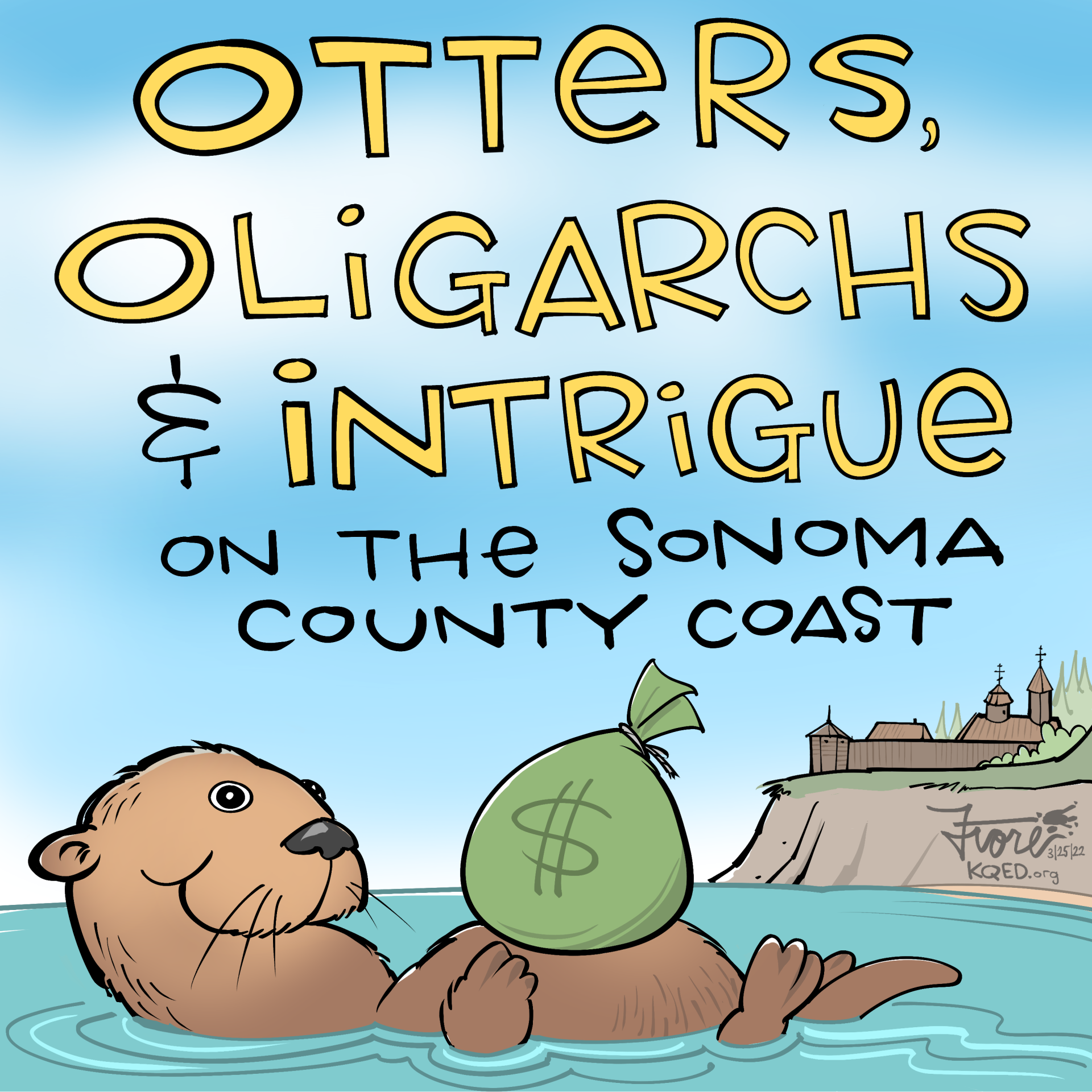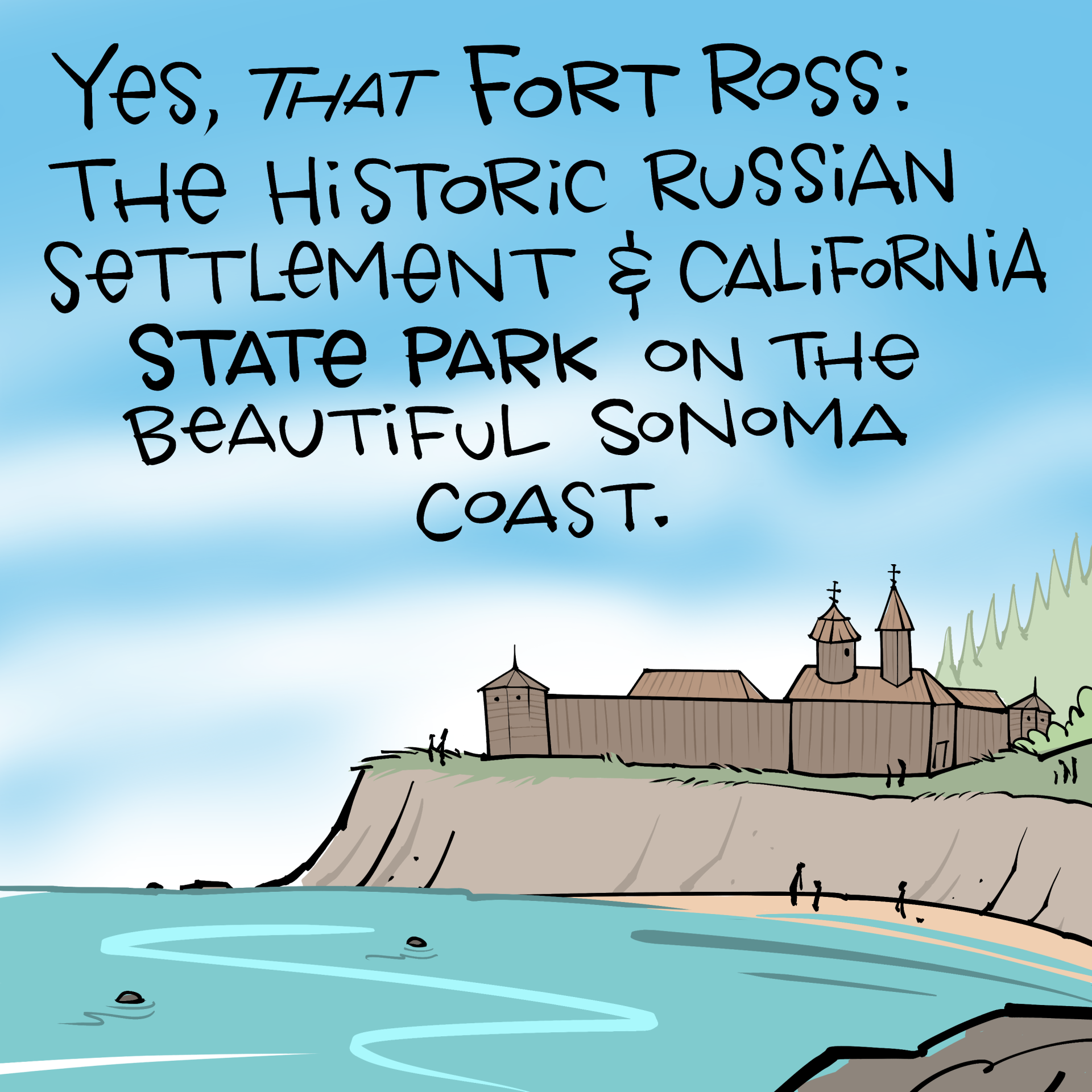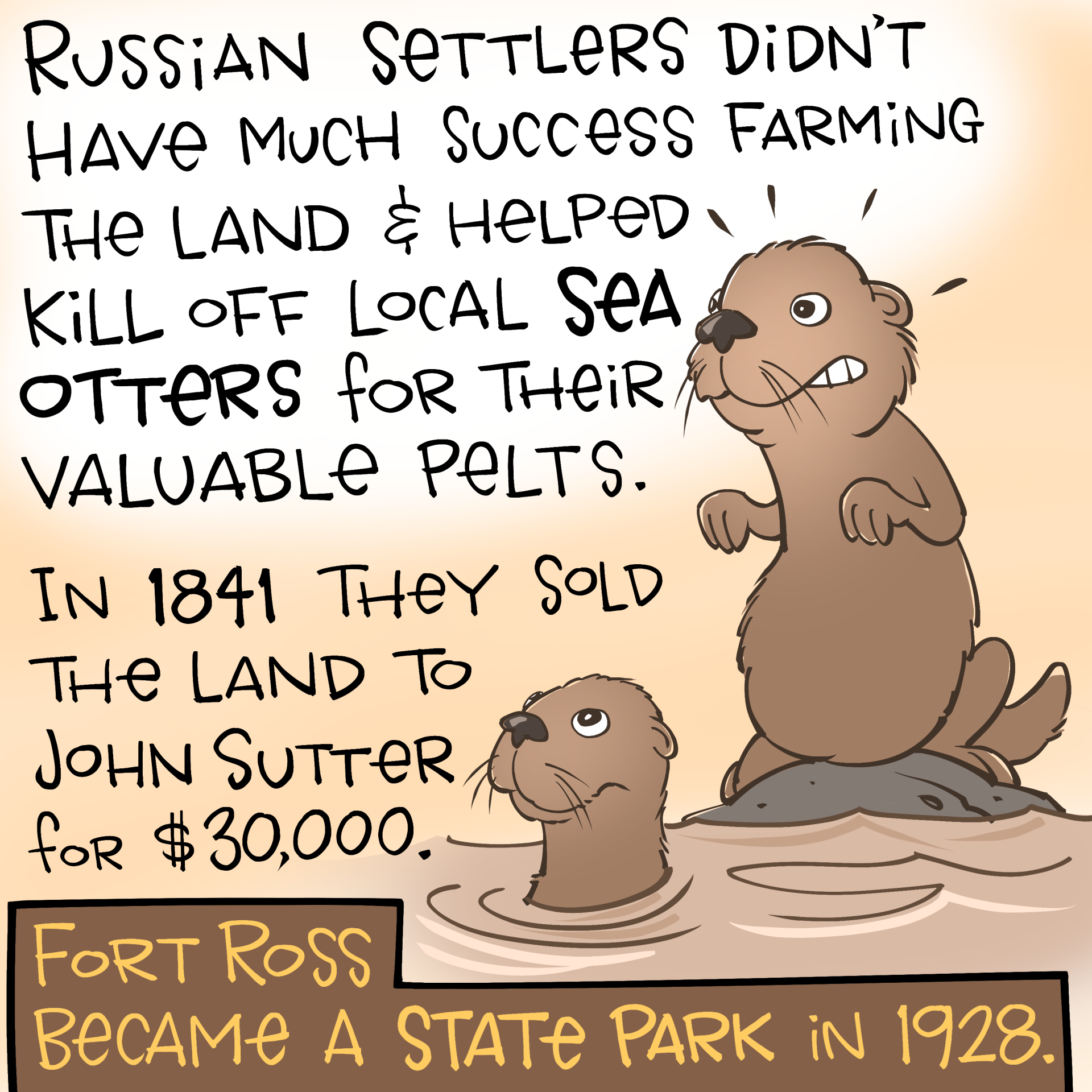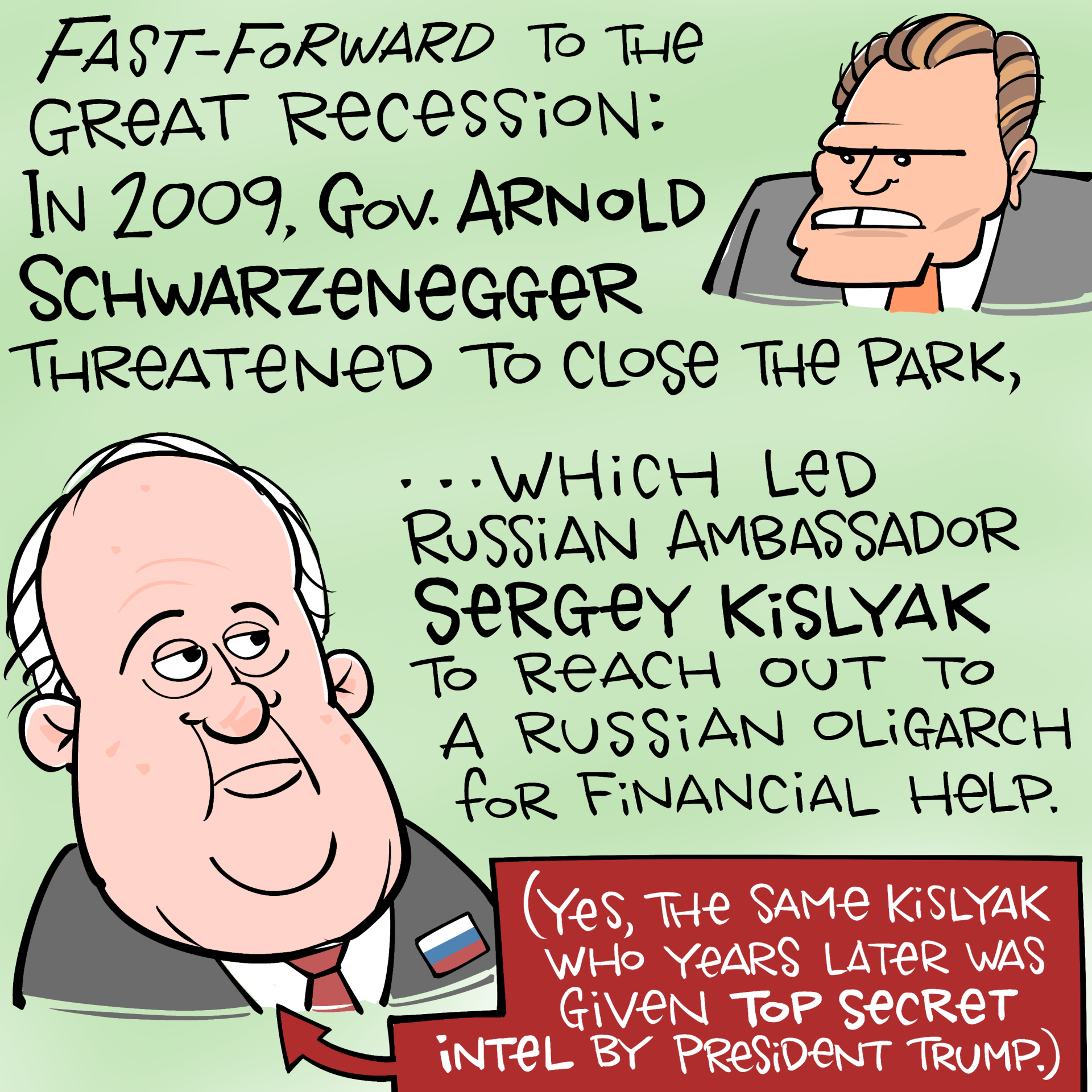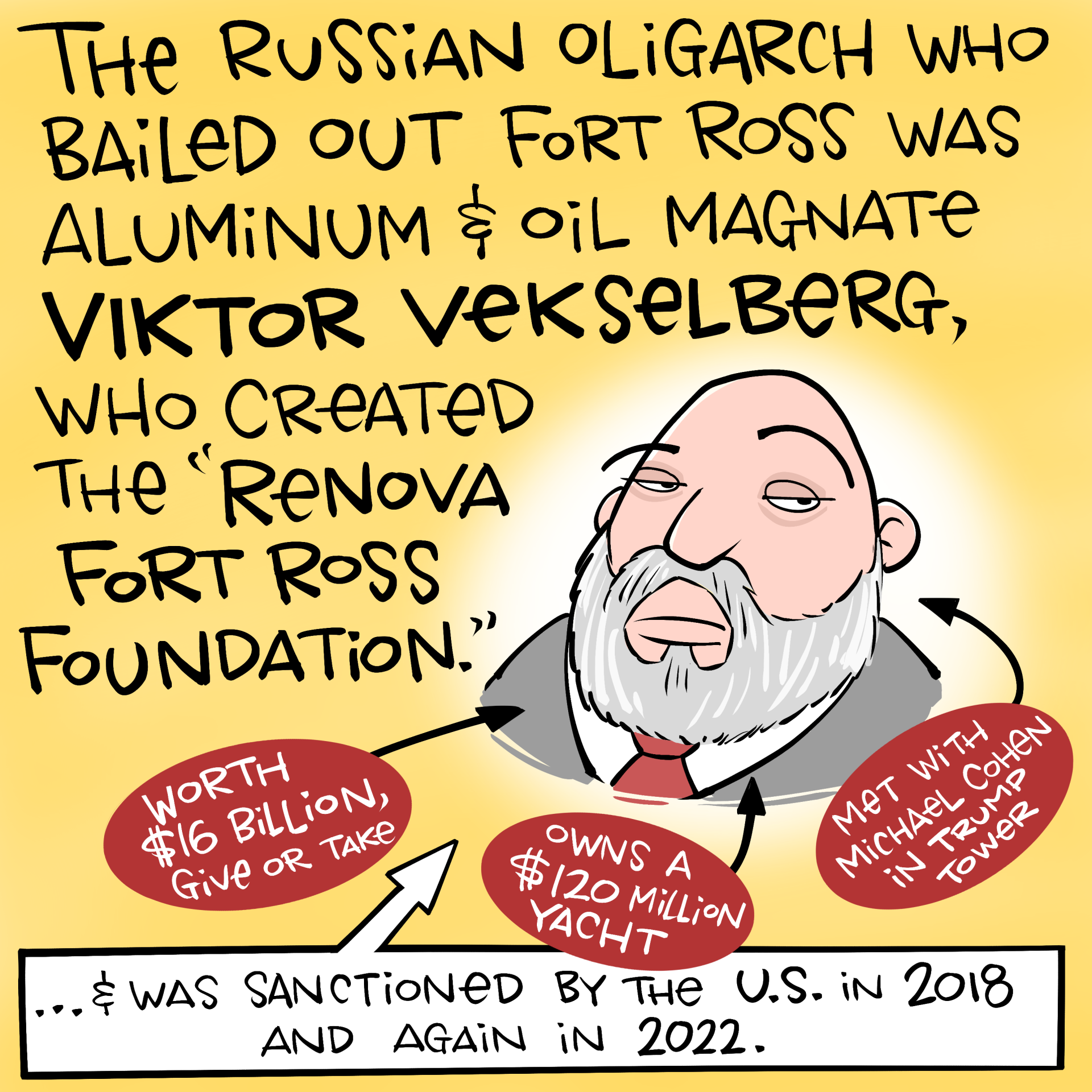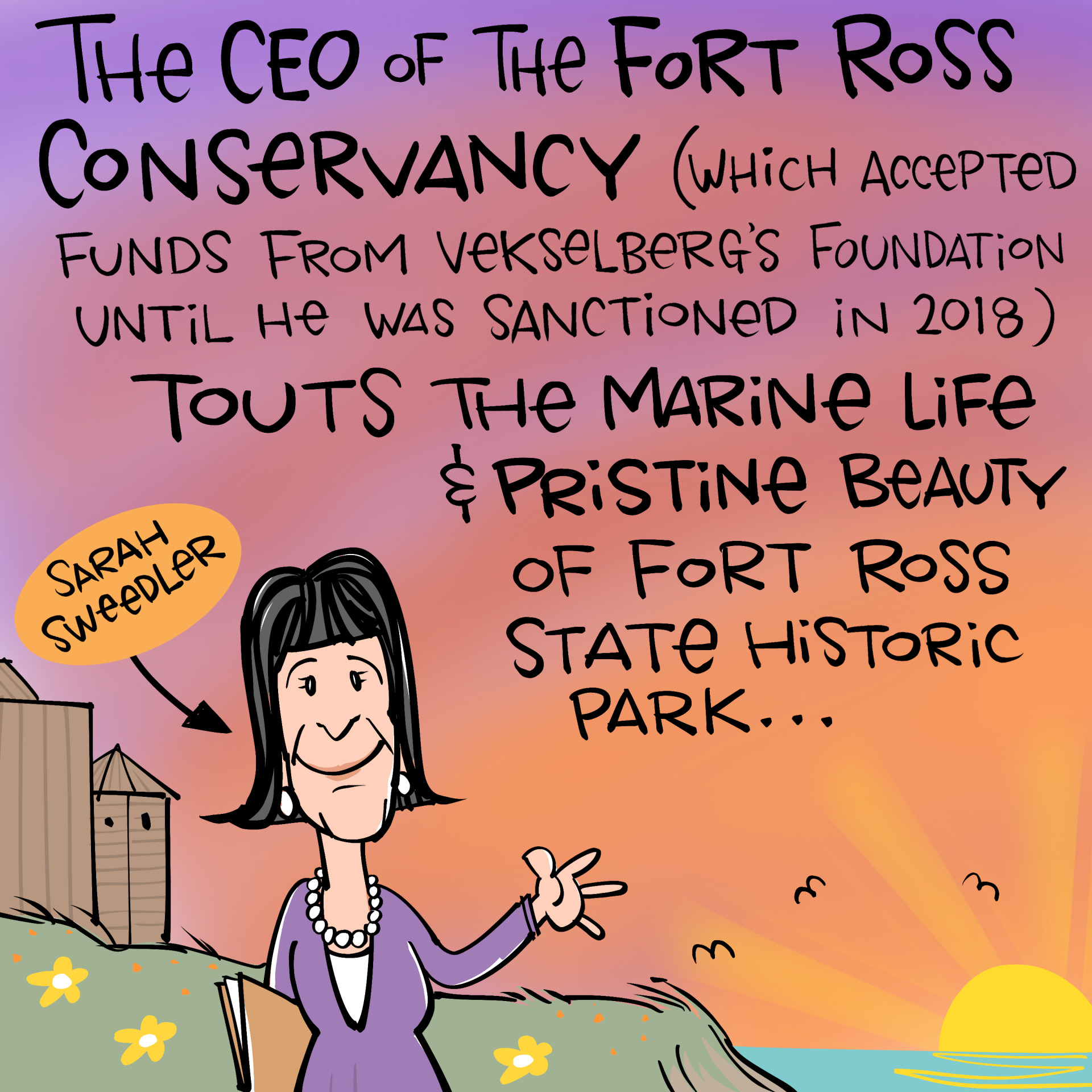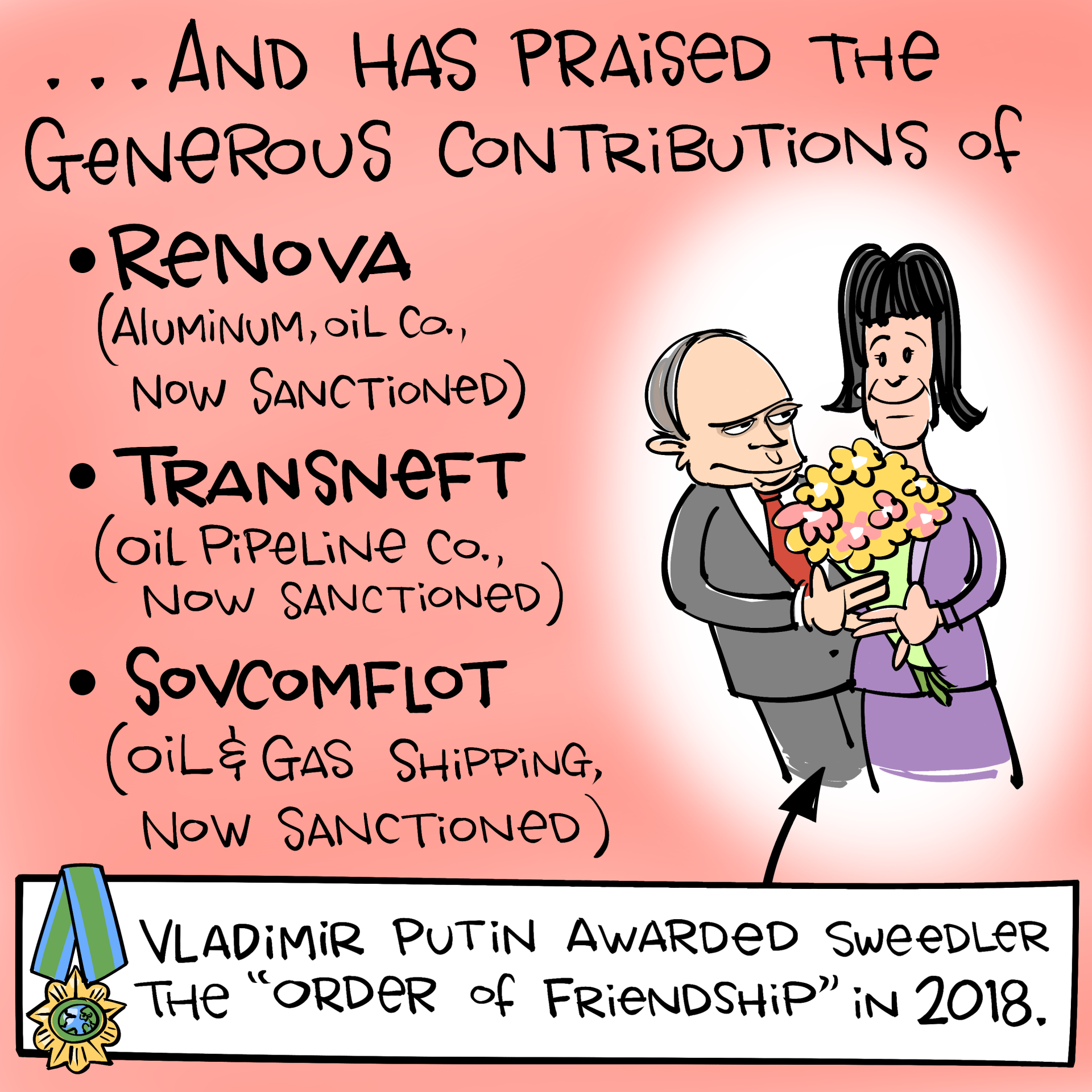What did we get when budget cuts threatened to close hundreds of California state parks?
In the case of Fort Ross State Historic Park, we got a Russian ambassador, an oligarch and funding from foreign oil, gas and mining interests.
After Russia launched a full-scale invasion of Ukraine on February 24, nations around the world responded by enacting tough sanctions on people and businesses in President Vladimir Putin’s orbit.
As the sanctions’ grip tightened, one influential member of the Russian parliament even raged on state television that Russia should take back Fort Ross.
Which is where our story begins …
Of course, public/private partnerships that help keep our parks in good shape aren’t necessarily a bad thing.
According to the Fort Ross Conservancy, money from Viktor Vekselberg’s foundation went to projects like an upgraded visitor center and “Marine Ecology for Little People” exhibit.
Conservancy CEO Sarah Sweedler (who, coincidentally, worked for KQED in the 1990s) said the Fort Ross Conservancy received less than 10% of its funding from Russian sources in 2021, and none in 2022, and emphasized that the organization complies with all laws, including those governing sanctions.
The conservancy also hosts the Fort Ross Dialogue, a conference created to improve relations between Russia and the United States.
That seems like a worthwhile (and now even more difficult) goal, but it doesn’t feel quite right when the speaker and sponsor list reads like a who’s who of Russian oil and gas exploration.
I don’t think we should trade park funding for any foreign state’s “soft power” operation.
Unfortunately, with recent developments in Ukraine, we may look back fondly on the days of soft power, no matter how oil-soaked they were.
Clarifications: California acquired Fort Ross as a park in 1909 and — according to National Park Service and Fort Ross Conservancy sources — designated it as a State Historical Monument in 1928.
This post has been updated to reflect Fort Ross Conservancy funding details provided by CEO Sarah Sweedler.
